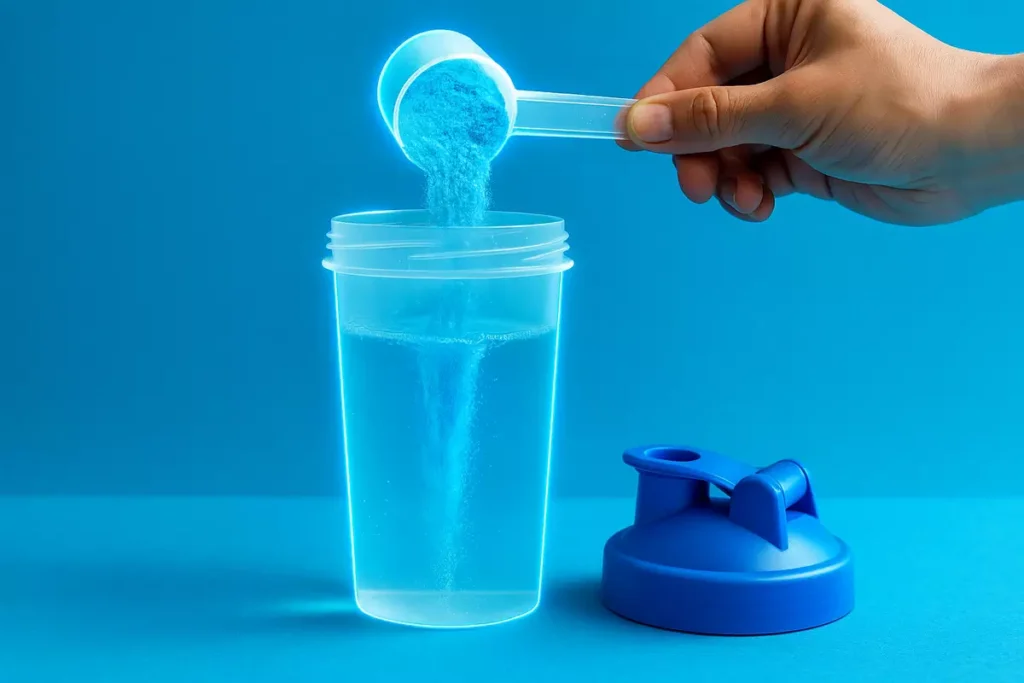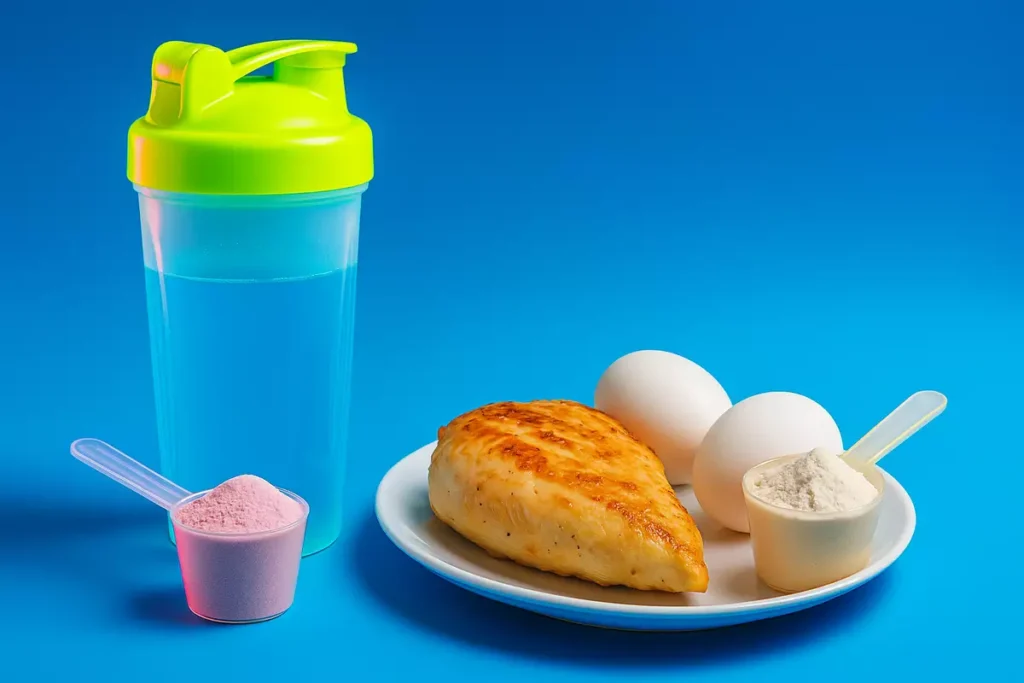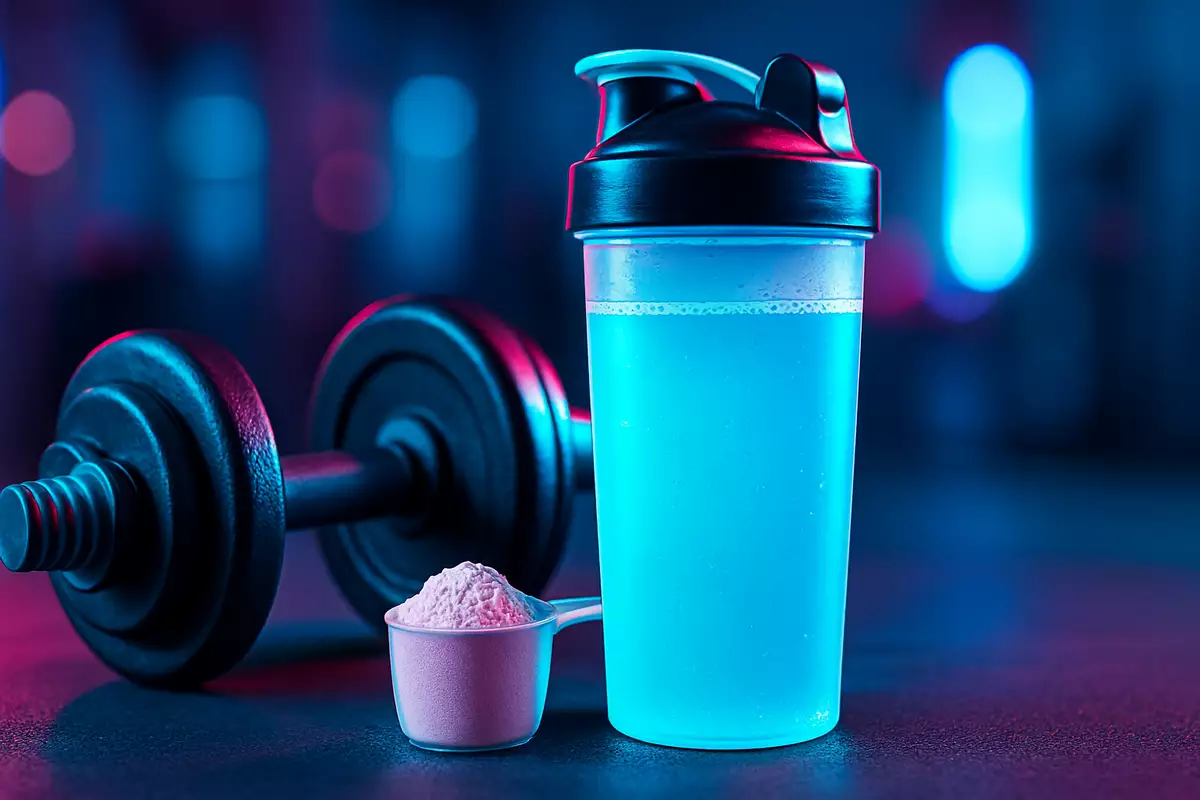If you’ve ever wondered whether BCAAs truly build muscle or are just marketing hype, you’re not alone.
Many athletes sip them during workouts hoping for faster recovery and better gains.
But do BCAAs really boost protein synthesis and support muscle growth, or are complete proteins still the king? Let’s break it down.
Table of contents
Quick Answer
One of the biggest questions I get from athletes and clients is: “Do BCAAs really stimulate protein synthesis and build muscle?”
Here’s the truth: BCAAs can trigger protein synthesis, but only up to a point. Leucine, one of the three BCAAs, directly activates the mTOR pathway that signals muscle growth. But without the other essential amino acids, that spark quickly dies out.
In simple words, BCAAs can give your muscles a push, but they can’t finish the job alone. If you want a deeper dive into whether they are worth it or just hype, check out my full guide: Do BCAAs Really Work or Waste?
What Are BCAAs?

BCAAs stand for branched-chain amino acids — leucine, isoleucine, and valine.
They’re called “branched-chain” because of their chemical structure. But what matters to you is their role in energy, muscle recovery, and protein metabolism.
Leucine is the superstar here, known as the direct trigger of protein synthesis. Isoleucine helps with energy regulation. Valine supports recovery.
Together, they play a role — but again, they’re only three of the nine essential amino acids.
How BCAAs Affect Protein Synthesis
The main mechanism is through leucine. It flips on the mTOR switch, telling your body to start building muscle.
That sounds amazing, right? Here’s the catch: without the other essential amino acids, your body doesn’t have the building blocks to actually build new muscle tissue.
Imagine starting a construction project with just bricks but no cement, sand, or workers — progress stops quickly.
From my own experience, I’ve felt the “kick” BCAAs give, especially during cutting phases when energy was low. They helped reduce soreness and gave me just enough to keep pushing.
But in terms of pure muscle-building, they’re no replacement for whole proteins like whey or chicken.
For those who want to know how long it takes to see results, I recommend reading: BCAA Results Timeline.
BCAAs vs. Whole Protein Sources

Here’s where many athletes get it wrong: BCAAs are a supplement, not a substitute.
Complete proteins — like whey, casein, eggs, or lean meat — provide all the essential amino acids your body needs for full protein synthesis.
That’s why I always encourage my clients to hit their protein goals through food and protein powders first.
For example, Maria from Spain tried BCAAs during her fat-loss program. She told me she didn’t feel much difference because she was already eating enough protein.
On the other hand, Daniel from Germany, who trained fasted in the mornings, felt more energy and less dizziness when using BCAAs.
This shows the context really matters. If you’re vegan, for example, BCAAs may be more valuable. I cover that in detail here: BCAA Benefits for Vegan Athletes.
When BCAAs May Be Beneficial
BCAAs aren’t completely useless — far from it. They can be very helpful in specific situations:
- Fasted training: They give your body amino acids without breaking the fast completely.
- Calorie deficit: They help reduce muscle breakdown when energy intake is low.
- Endurance sessions: They provide quick fuel during long, grueling workouts.
When I was deep into a cutting phase, I remember sipping BCAAs before training. I wasn’t adding new muscle, but I definitely felt less “flat” and recovered faster between sessions.
That made a big difference mentally and physically. For hydration and energy during long sessions, I also suggest checking: BCAAs and Hydration for Long Workouts.
If you’re curious about using them post-training, read: BCAA Post-Workout Recovery.
Trainer’s Recommendation

Here’s my advice after years of training and coaching:
- If you’re eating enough protein (1.6–2.2 g per kg of body weight), you don’t need BCAAs.
- If you train fasted, are cutting aggressively, or do endurance workouts, BCAAs can be a supportive tool.
- Don’t expect them to be a magic muscle-builder — think of them as a helper, not the main player.
Personally, I prefer investing in whey protein because it gives you the full amino acid profile your muscles require.
But in certain contexts, like competition prep or fasted training, BCAAs can give you that small edge. And if you’re sensitive to stimulants, you can still use stimulant-free options — see my guide: BCAAs Without Caffeine.
Final Takeaway
BCAAs can stimulate protein synthesis, but they cannot sustain it alone. They’re most useful in very specific scenarios but not essential for everyone.
If you’re already hitting your protein goals from whole foods and powders, focus on consistency, training, and recovery instead of spending extra money on BCAAs.
But if you’re training fasted, cutting hard, or looking for a small recovery boost, they may be worth adding to your stack.
At the end of the day, supplements should support your lifestyle — not control it. Train smart, eat enough complete protein, and use BCAAs as a tool, not a crutch.



Leave a Reply